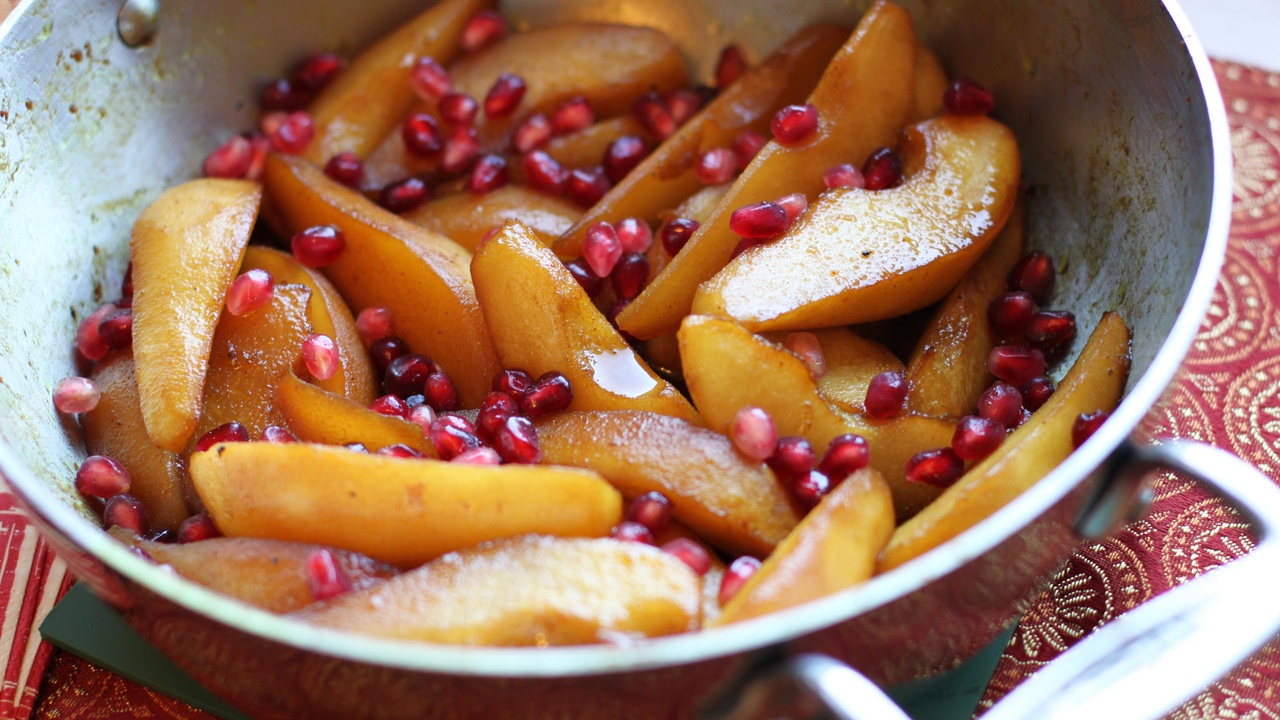Asparagus, and 3 Show-stopping Ways to Make It

Let's zero in on asparagus. What is it, is it thyroid-healthy, and what are some delicious ways to prepare it? In this blog post and episode of Thyroid-healthy Bites, I’ll touch on some of the unique things about this singular vegetable, especially as it pertains to Thyroid Thrivers.
These beautiful, tender spears taste like springtime, are quick to prepare, and are easy to eat, but I don’t want to waste this opportunity to get to know the star of today’s show a little better, before we steam it, roast it, grill it, wrap it, dip it in sauce, and gobble it up!
First, we’ll talk about how to purchase and store asparagus, and some of its thyroid-healthy highlights. I’m also going to cover some of the weirder aspects of asparagus, namely its sulfur-containing compounds. After that, we’ll be heading to the kitchen to make 3 show-stopping asparagus recipes.
We'll Discuss:
- What asparagus is and how to purchase and store it
- The Thyroid-healthy Highlights of asparagus
- Sulfur in asparagus and why it can be a good and bad thing
- My experience with high-sulfur foods
- Recipe Demo: Steamed Asparagus with Lemon Basil Aioli (from The Thyroid-healthy Everyday Cookbook)
- Recipe Demo: Herb Roasted (or Grilled) Asparagus
- Recipe Demo: Prosciutto-wrapped Asparagus
Disclaimer: This information is for educational and inspirational purposes only. Always consult with your doctor or other qualified healthcare providers before making changes to your diet, health care, or exercise regimen.
Show Notes:
- Download my FREE Thyroid-healthy Grocery Guide
- Prosciutto Wrapped Asparagus Recipe
- Herb Roasted or Grilled Asparagus Recipe
- The Thyroid-healthy Everyday Cookbook
- Dr. Ruscio and Heidi Turner on Sulfur Intolerance
- My Favorites Store with Discount DUTCH Test Link
- How to Find a Good Thyroid Doctor
Podcast Links:
- Subscribe on iTunes
- Follow on Spotify
- Subscribe on YouTube
- Subscribe on Google Podcasts
- Subscribe on Amazon Music
- Listen on Stitcher
- Listen on the podcast page
What Is Asparagus?
I was surprised to learn that asparagus is in the lily family. Most of you know those unmistakable green spears with the tender leafy tips, but asparagus can also be grown in white and purple varieties.
Asparagus is a quintessential spring vegetable, with asparagus season running from February through June.
When buying asparagus, look for firm, bright green spears with no signs of shriveling or slime.
Store your asparagus in a produce bag in your refrigerator’s vegetable crisper drawer.
Alternately, you can trim the very ends off your asparagus spears, and store them upright in a glass container with a couple inches of water. If you go that route, I recommend covering your spears loosely with a produce bag and refrigerating, to prevent mold.
Thyroid-healthy Highlights of Asparagus
Asparagus has all kinds of health-supportive benefits.
First, It’s a very good source of dietary fiber, which supports digestion and gut health. Fiber is essential in supporting our beneficial gut bacteria, and also in keeping the food moving through our digestive tract, and keeping us regular. This is especially important for those of us with an underactive or missing thyroid, who often struggle with slow gut motility and constipation. In just half a cup of asparagus, you get about 2 grams of fiber.
Asparagus is also a source of several key thyroid-supporting nutrients like B6, Magnesium, Zinc, Iron, and Selenium, but there are several other antioxidants and minerals in asparagus. It’s especially high in Vitamin K and folate.
I think one of the best parts about asparagus is that all that nutrient density comes at the low cost of just 20 calories per 1/2 cup serving! It’s about 94% water, and those water-rich veggies are some of the best foods we can eat for weight loss.
Lots of colorful, organic produce is one of the pillars of thyroid-healthy eating, and asparagus is a great choice for those of us trying to maintain a healthy weight while maximizing our nutrition.
Sulfur in Asparagus (and Why it Makes Your Pee Stink)
One of the weirdest things about asparagus that you may have noticed is that it makes your pee stink. There is a scientific explanation for this very scientific phenomenon called……asparagus pee (LOL). It doesn’t happen to everyone, but about approximately half of us notice a strong sulfuric smell after we eat asparagus. This is a byproduct of the metabolization of something unique to asparagus called asparagusic acid (I swear, I’m not making this up), which is a sulfur-containing compound. And sulfur kind of smells like rotten eggs, or skunk.
The reason I mention this about asparagus, aside from the fact that I love bizarre food trivia, is that sulfur is a naturally-occurring chemical found in many foods, which can be both highly beneficial, and also problematic for some of us as Thyroid Thrivers– depending on the individual.
To be clear, sulfur is not bad for us. It’s actually quite a vital mineral. Sulfur molecules help to produce glutathione, which is the body’s main antioxidant. It’s just that some of us become somewhat intolerant of high-sulfur foods due to things like gene mutations, nutrient deficiencies, gut issues, poor methylation, or exposure to toxins (like mercury).
My Experience with Sulfur Intolerance
I have personally dealt with sulfur sensitivity and intolerance, and it was nutritionally one of the most frustrating road bumps along my Hashimoto’s journey so far because so many healthy foods that are staples in my diet are high in sulfur.
Foods like onions, garlic, cruciferous vegetables, and– this one was the worst– avocado, are all high in sulfur. And when you’re already trying to stay the course by avoiding gluten, dairy, sugar, and other problematic foods, it can be extremely disheartening when you start to react to the healthy foods you depend on for sustenance!
Sulfur sensitivity is complex nutritional territory, and it took me a long time and a lot of experimentation to figure out what worked, and what was really at the root of the problem (spoiler alert: poor methylation). Rest assured, the solution was not eliminating these foods, long-term, which would have been a nutritionally problematic choice for me anyway.
You can watch/listen to the show to hear my full story, but in a nutshell, with the help of my ND, we looked at my complete hormonal picture using the DUTCH test. This revealed that I was not methylating well. We also ran a complete thyroid panel and did some gut testing too, but it was the DUTCH test that most clearly indicated a methylation issue.
Methylation is a complex process, and if you'd like to learn more I recommend this article by Dr. Deanna Minich. The thing to note, which was pertinent in my case, is that methylation problems can lead to problems with sulfur processing, so my ND's approach was to use targeted supplements to give my body the methylation support that it needed. Her explanation was that my body was building up a backlog of toxins because of not getting enough sulfur, not methylating well, or both. Upon implementing my doctor's recommendations, my symptoms (brain fog, tiredness, hair shedding) stopped.
The Takeaway: Asparagus makes your pee stink because it has sulfur. Sulfur is good for us, especially in terms of detoxification. It’s very important to the liver and other physiological processes. But some of us may have a little trouble processing sulfur, for various reasons.
If you are in the midst of your own sulfur-processing saga, like I went through, that is the one caveat I have for you about asparagus. Just remember that eliminating sulfur-containing foods is not necessarily going to get at the root cause of your sulfur issues. It's important to find and consult with a functional or holistic medical professional who can help you navigate the complexities of this issue with targeted treatment.
Further Reading: How to Find a Good Thyroid Doctor
In Conclusion
Asparagus has several health benefits that can be beneficial to Thyroid Thrivers. It's high in fiber, nutrient-dense, and low in calories. One of the unique things about asparagus is that it contains asparagusic acid, which gets broken down into sulfuric compounds during digestion. Sulfur is highly beneficial to the liver, detoxification, and the production of glutathione; however, some thyroid and autoimmune patients have experienced sulfur intolerance, due to underlying issues. If you are currently avoiding sulfur-containing foods, asparagus is on that list. For the rest of us, asparagus has a lot of benefits to offer Thyroid Thrivers, nutritionally speaking.
Asparagus happens to be one of over 130 delicious, gluten-free, dairy-free, soy and sugar-free foods, on my Thyroid-healthy Grocery Guide. If you’d like to grab an updated copy, or if you haven’t already downloaded it, click the button below to get your free copy of the list.
Happy thriving, and enjoy the episode!

P.S. Need more help and support? Book a coaching call with me to discuss your current health challenges and goals.
Asparagus Recipes from the Show:
- Steamed Asparagus with Lemon Basil Aioli (from The Thyroid-healthy Everyday Cookbook)
- Herb Roasted (or Grilled) Asparagus
- Prosciutto-wrapped Asparagus
Subscribe to my free newsletter for fresh recipes & lifestyle tips, delivered weekly, and receive a free gift!
By submitting this form, you agree to receive ongoing updates from Hypothyroid Chef










